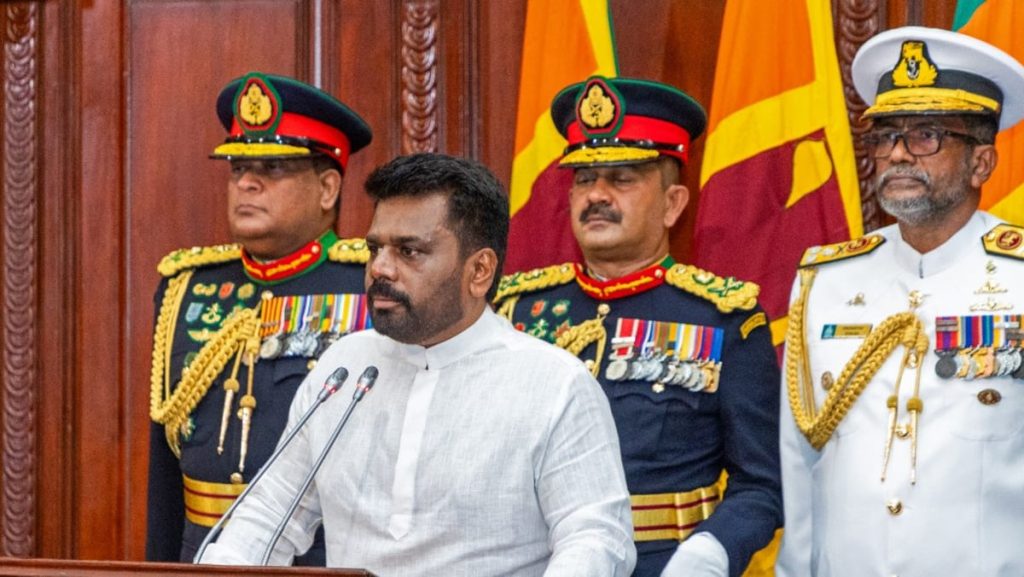President Dissanayaka, from the JVP party in Sri Lanka, expressed the importance of international support to rebuild the country’s economy. Despite the party’s historical anti-West and anti-India stance, he emphasized the need to work with other nations for the benefit of Sri Lanka. With China and India vying for influence in the strategically located island nation, Dissanayaka welcomed cooperation with both countries. Indian Prime Minister Narendra Modi and Chinese President Xi Jinping also expressed their readiness to work with the new president to enhance mutual cooperation.
The JVP party, known for leading rebellions in the 1970s and 1980s that resulted in the deaths of over 80,000 people, has since renounced violence. Despite being a minor player in Sri Lankan politics in recent years, Dissanayaka’s popularity grew during the country’s crisis. He pledged to combat corruption in the political system and bring about change. As a former JVP student leader, Dissanayaka had experienced the violence perpetuated by government-backed death squads against party activists. He draws inspiration from Marxist revolutionary Che Guevara and is focused on transforming Sri Lanka’s political landscape.
Dissanayaka’s election as president marked a significant moment in Sri Lankan political history. He received just over 42 per cent of the popular vote, the lowest percentage for a president since elections began in 1988. Acknowledging the limited mandate he received, Dissanayaka expressed his commitment to earning the support and confidence of those who did not vote for him. He highlighted the importance of unity and cooperation in moving the country forward. Dissanayaka’s presidency signals a new era for Sri Lanka, with a focus on rebuilding the economy and fostering international partnerships.
The involvement of international actors, such as India and China, in Sri Lanka’s affairs adds a complex dimension to the country’s political landscape. Both countries have strategic interests in Sri Lanka due to its geographical location on global east-west sea routes. While India seeks to strengthen cooperation with Dissanayaka for the benefit of the region, China emphasizes its longstanding friendship with Sri Lanka. Dissanayaka’s willingness to engage with both countries reflects his commitment to leveraging international partnerships for the country’s advancement.
As the first president from the JVP party, Dissanayaka faces the challenge of leading Sri Lanka through a period of economic uncertainty and political change. His background as a former student leader and his experiences during times of violence provide him with a unique perspective on the country’s challenges. With a focus on combatting corruption and building a more inclusive political system, Dissanayaka aims to unite the country and earn the trust of all citizens. His presidency marks a significant shift in Sri Lankan politics and offers hope for a more stable and prosperous future under his leadership.
In conclusion, President Dissanayaka’s commitment to working with other nations, despite the JVP party’s historical stance, signals a new era for Sri Lanka’s foreign relations. With support from countries like India and China, he aims to rebuild the economy and foster international cooperation. His background and experiences have shaped his approach to governance, emphasizing unity and inclusivity. The challenges he faces as president require bold leadership and a vision for the country’s future. Dissanayaka’s presidency represents a turning point in Sri Lankan politics, with potential for positive change and progress in the years to come.


